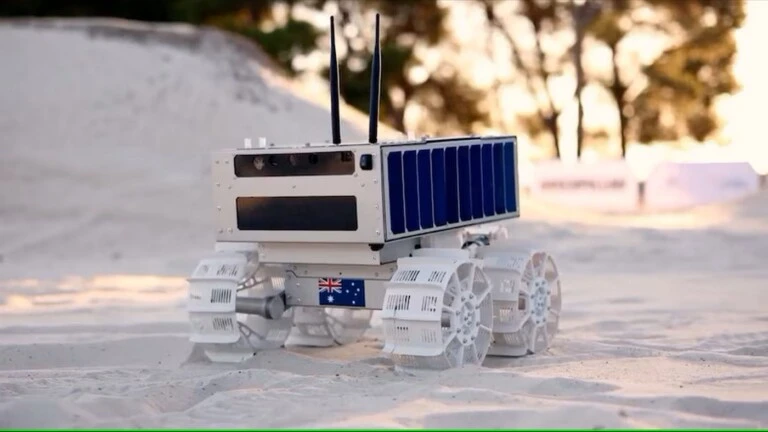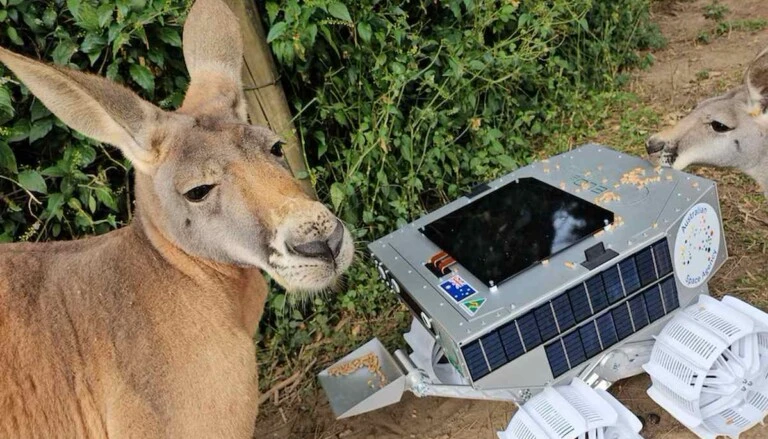Introducing the ‘Roo-ver’—a groundbreaking little explorer set to make waves Down Under and beyond.
The Roo-ver is Australia’s first significant foray into robotic space exploration, marking the country’s debut in Lunar rover technology. This innovative machine, developed through a collaboration of 21 private companies, universities, and startups, represents a milestone in Australia’s contribution to space exploration. Its name, chosen from over 8,000 public submissions, pays tribute to the nation’s iconic kangaroo and its pioneering spirit.

Backed by AUD$42 million in funding from the Australian government and with NASA providing transportation to the Moon, Roo-ver is on a mission to revolutionize our understanding of the Lunar surface. Its primary objective is to collect and analyze regolith—the Moon’s dusty soil—for traces of water and oxygen, essential components for supporting life and future Lunar operations.
This mission aligns with global ambitions to establish a sustainable human presence on the Moon, as outlined in the Artemis Accords and the International Lunar Research Station project (ILRS). These initiatives aim to harness in-situ resources, such as water and air, to facilitate long-term habitation and exploration beyond Earth.
Warwick Penrose, a key figure in the ELO2 consortium behind the Roo-ver’s development, emphasized the mission’s significance: “To reach Mars and sustain human exploration there, we first need to establish a base on the Moon. Launching from the Moon simplifies the logistics of interplanetary travel, as it eliminates the need to overcome Earth’s atmosphere and gravity.”
Launching rockets from the Moon rather than Earth could dramatically reduce fuel requirements, enabling more efficient missions to Mars and beyond.
Enrico Palermo, head of the Australian Space Industry, highlighted the broader impact of this endeavor: “This mission showcases Australia’s leadership in remote operations and demonstrates our growing capabilities in the global space industry.”
The Roo-ver is set to take its monumental leap into space later this decade, propelling Australia to the forefront of Lunar exploration and the next era of human spaceflight.
